第141章 CHAPTER XXI(5)
All did come right, after a fashion, and he again gave up reading newspapers; but ere long he was startled by reports much more alarming than any rumours of war. People began to talk about the peasant question, and to say openly that the serfs must soon be emancipated. For once in his life Ivan Ivan'itch asked explanations. Finding one of his neighbours, who had always been a respectable, sensible man, and a severe disciplinarian, talking in this way, he took him aside and asked what it all meant. The neighbour explained that the old order of things had shown itself bankrupt and was doomed, that a new epoch was opening, that everything was to be reformed, and that the Emperor, in accordance with a secret clause of the Treaty with the Allies, was about to grant a Constitution! Ivan Ivan'itch listened for a little in silence, and then, with a gesture of impatience, interrupted the speaker: "Polno duratchitsya! enough of fun and tomfoolery.
Vassili Petrovitch, tell me seriously what you mean."
When Vassili Petrovitch vowed that he spoke in all seriousness, his friend gazed at him with a look of intense compassion, and remarked, as he turned away, "So you, too, have gone out of your mind!"
The utterances of Vassili Petrovitch, which his lethargic, sober-
minded friend regarded as indicating temporary insanity in the speaker, represented fairly the mental condition of very many Russian nobles at that time, and were not without a certain foundation. The idea about a secret clause in the Treaty of Paris was purely imaginary, but it was quite true that the country was entering on an epoch of great reforms, among which the Emancipation question occupied the chief place. Of this even the sceptical Ivan Ivan'itch was soon convinced. The Emperor formally declared to the Noblesse of the province of Moscow that the actual state of things could not continue forever, and called on the landed proprietors to consider by what means the condition of their serfs might be ameliorated. Provincial committees were formed for the purpose of preparing definite projects, and gradually it became apparent that the emancipation of the serfs was really at hand.
Ivan Ivan'itch was alarmed at the prospect of losing his authority over his serfs. Though he had never been a cruel taskmaster, he had not spared the rod when he considered it necessary, and he believed birch twigs to be a necessary instrument in the Russian system of agriculture. For some time he drew consolation from the thought that peasants were not birds of the air, that they must under all circumstances require food and clothing, and that they would be ready to serve him as agricultural labourers; but when he learned that they were to receive a large part of the estate for their own use, his hopes fell, and he greatly feared that he would be inevitably ruined.
These dark forebodings have not been by any means realised. His serfs were emancipated and received about a half of the estate, but in return for the land ceded they paid him annually a considerable sum, and they were always ready to cultivate his fields for a fair remuneration. The yearly outlay was considerably greater, but the price of grain rose, and this counterbalanced the additional yearly expenditure. The administration of the estate has become much less patriarchal; much that was formerly left to custom and tacit understanding is now regulated by express agreement on purely commercial principles; a great deal more money is paid out and a great deal more received; there is much less authority in the hands of the master, and his responsibilities are proportionately diminished; but in spite of all these changes, Ivan Ivan'itch would have great difficulty in deciding whether he is a richer or a poorer man. He has fewer horses and fewer servants, but he has still more than he requires, and his mode of life has undergone no perceptible alteration. Maria Petrovna complains that she is no longer supplied with eggs, chickens, and homespun linen by the peasants, and that everything is three times as dear as it used to be; but somehow the larder is still full, and abundance reigns in the house as of old.
Ivan Ivan'itch certainly does not possess transcendent qualities of any kind. It would be impossible to make a hero out of him, even though his own son should be his biographer. Muscular Christians may reasonably despise him, an active, energetic man may fairly condemn him for his indolence and apathy. But, on the other hand, he has no very bad qualities. His vices are of the passive, negative kind. He is a respectable if not a distinguished member of society, and appears a very worthy man when compared with many of his neighbours who have been brought up in similar conditions.
Take, for instance, his younger brother Dimitri, who lives a short way off.